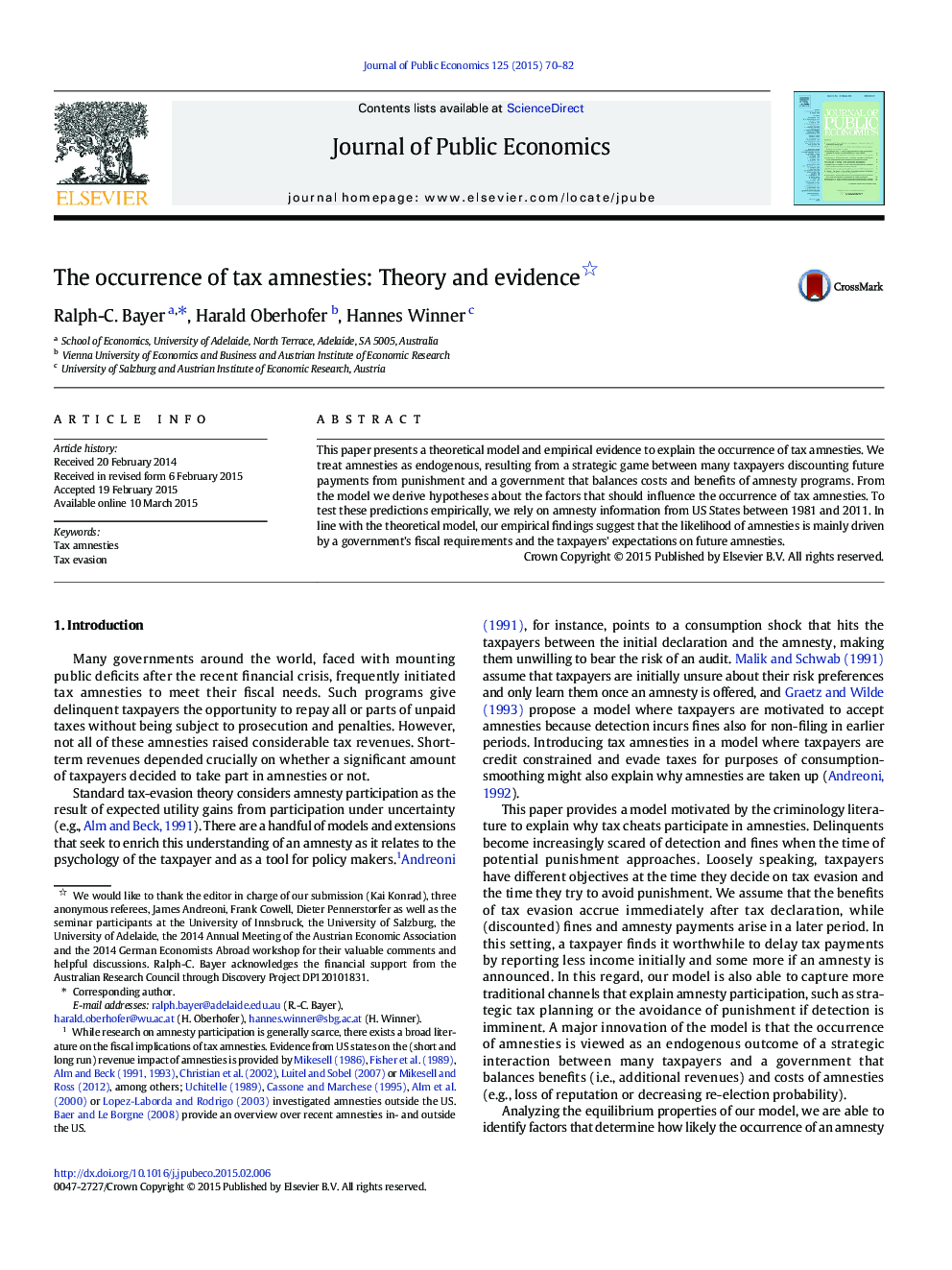| Article ID | Journal | Published Year | Pages | File Type |
|---|---|---|---|---|
| 969057 | Journal of Public Economics | 2015 | 13 Pages |
•Theoretical model that investigates the causes of amnesties•Tax evaders that discount future fines take up amnesties that leave incentives unchanged.•Governments call an amnesty if this considerably improves their budget situation.•Taxpayers' expectations about the likelihood of an amnesty can be self-fulfilling.•Main predictions of the model are confirmed using state-level amnesty data for the US.
This paper presents a theoretical model and empirical evidence to explain the occurrence of tax amnesties. We treat amnesties as endogenous, resulting from a strategic game between many taxpayers discounting future payments from punishment and a government that balances costs and benefits of amnesty programs. From the model we derive hypotheses about the factors that should influence the occurrence of tax amnesties. To test these predictions empirically, we rely on amnesty information from US States between 1981 and 2011. In line with the theoretical model, our empirical findings suggest that the likelihood of amnesties is mainly driven by a government's fiscal requirements and the taxpayers' expectations on future amnesties.
